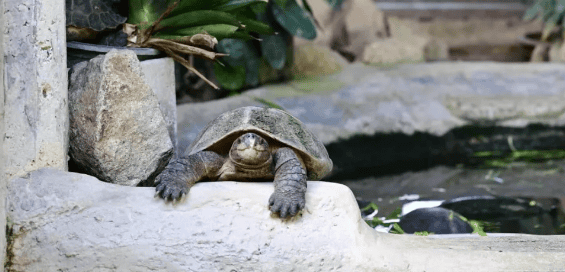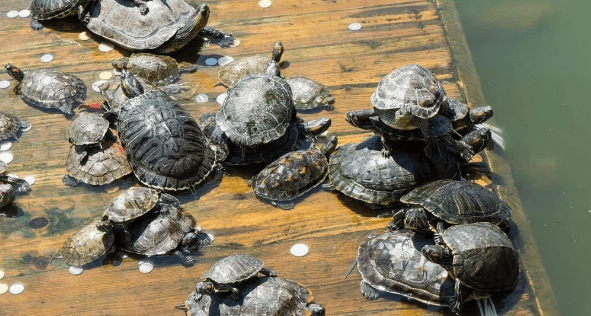The little turtles raised at home may seem carefree and carefree, but in fact they also have their natural enemies. Today, we will talk about the three things that domestic turtles are most afraid of, so that you can be more comfortable when taking care of these little guys.
1. Afraid of large temperature changes
Turtles are cold-blooded animals and have poor adaptability to environmental temperatures. An environment that is too cold or too hot can make them feel uncomfortable and even cause illness. Therefore, what domestic turtles fear most is large temperature changes. In winter, care should be taken to provide a warm environment for turtles to prevent them from getting frostbite or getting sick due to the cold. In summer, be careful to avoid direct sunlight to avoid heatstroke caused by excessive temperatures. In addition, attention should also be paid to changes in temperature differences in spring and autumn, and the feeding environment should be adjusted in a timely manner.

2. Afraid of water pollution
Turtles? Living in water, the quality of the water is directly related to their health. What domestic turtles fear most is water pollution. Polluted water may contain pathogens such as bacteria and viruses. Once these pathogens invade the turtle's body, they may cause various diseases. Therefore, the water used to raise turtles should be changed regularly and kept clean. At the same time, pay attention to the cleanliness of the breeding container to avoid the breeding of bacteria. In addition, when feeding turtles, you should also pay attention to cleaning up food residues to avoid contaminating the water quality.
3. Afraid of fright and interference
Turtles are timid animals and are very sensitive to changes in their surrounding environment. What domestic turtles fear most is fright and disturbance. For example, sudden loud noises and frequent human interference may make turtles feel uneasy and affect their normal life. Therefore, when raising turtles, try to keep the breeding environment quiet and stable and avoid disturbing them frequently. At the same time, you should also pay attention to the choice of breeding containers and try to provide a spacious and comfortable living space for the turtle.
4. Tips for daily care of small turtle pets
1. Reasonable feeding
The eating habits of turtles are directly related to their health. It is necessary to choose appropriate feed according to different species and ages of turtles, and control the feeding amount. Overfeeding may not only lead to obesity in your turtle, but may also cause digestive problems. At the same time, pay attention to the diversity of food to provide the turtle with rich nutrition.
2. Regular cleaning
The turtle’s living environment needs to be cleaned and disinfected regularly to maintain hygiene. In addition to regularly changing the breeding water, the breeding container and the turtle's body must also be cleaned regularly. When cleaning, you can use a soft-bristled brush to gently scrub the turtle's body and shell, but be careful not to damage them.

3. Moderate exercise
Although turtles Move slowly, but also need moderate exercise to stay healthy. It can provide a spacious breeding environment for the turtles, allowing them to have enough space to move around. At the same time, turtles can also be trained to learn some simple actions, such as crawling, turning over, etc., to increase their activity and interest.
4. Pay attention to observation
Observing the behavior and status of turtles is an important basis for judging whether they are healthy. Always pay attention to the turtle's appetite, activity, defecation, etc., and take timely measures to deal with any abnormalities found. In addition, you should take your turtles to the pet hospital for regular check-ups to ensure their health.
By understanding the three things domestic turtles fear most, we can take better care of them. Remember, keeping turtles is more than just a hobby, it’s a responsibility. Only by caring for them carefully can they grow up healthily and happily. Let us work together to become qualified "turtle parents and turtle mothers"!

 扫一扫微信交流
扫一扫微信交流
发布评论